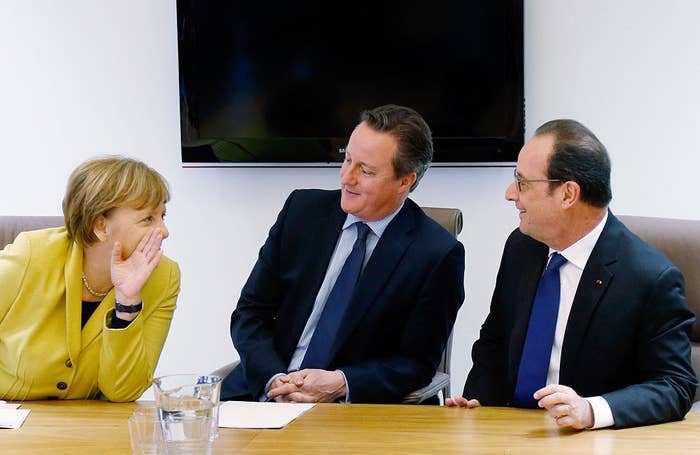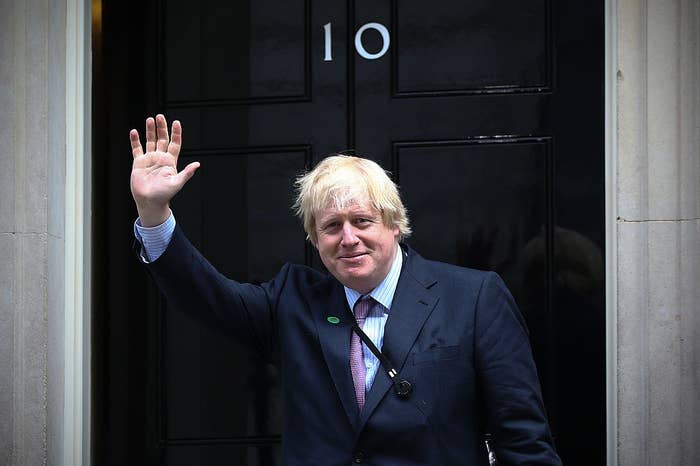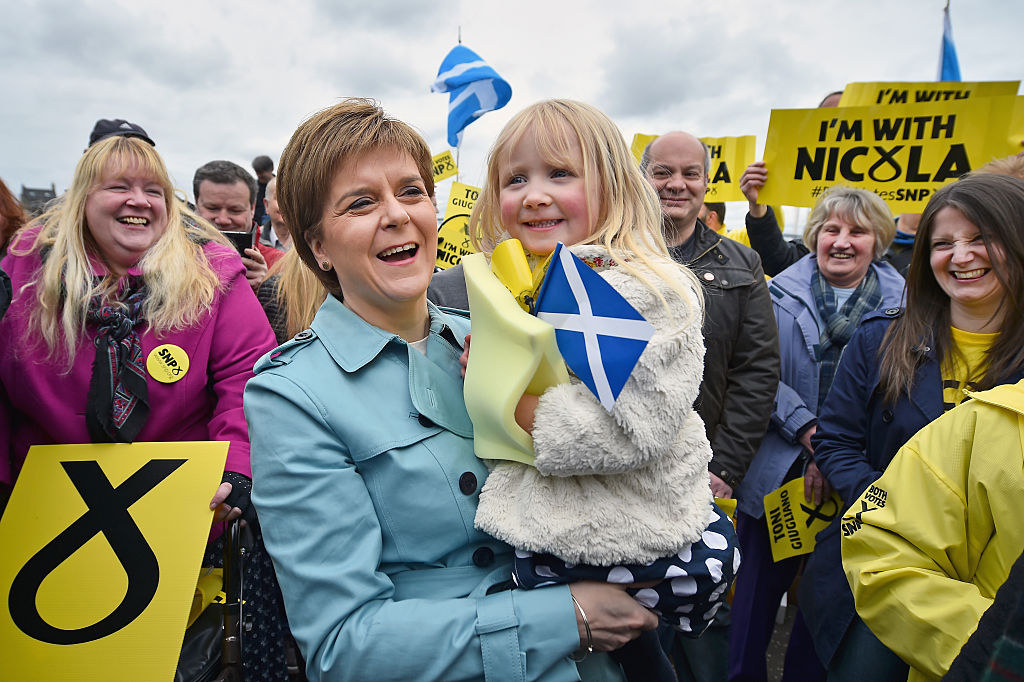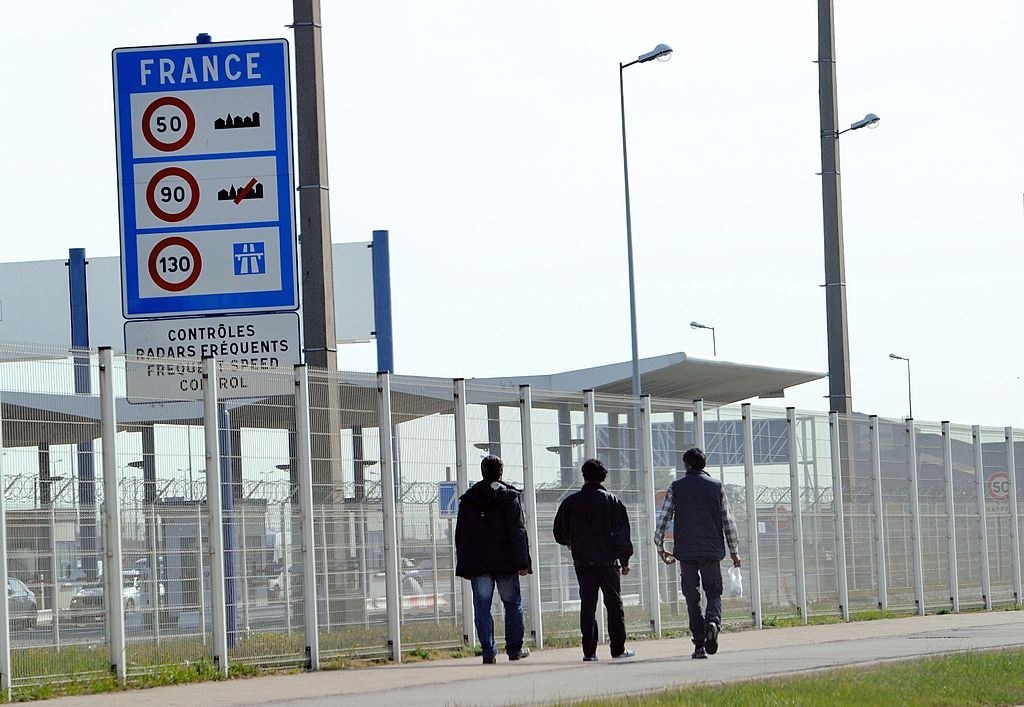
The European Union will negotiate a new trade deal with Britain if it votes to leave on 23 June, but the process would take years and come at a cost for the UK, senior eurozone government officials have told BuzzFeed News.
With under two months to go until the UK's referendum, the senior figures from Europe's biggest economies also said their contingency planning for a Brexit vote included an assumption that David Cameron would be replaced as prime minister, with Boris Johnson the most likely successor, and that the result could trigger a second Scottish independence vote.
One government official said that in the latter event, EU membership for a newly independent Scotland could be fast-tracked while negotiations with London continued. However, an official from another major government said that suggestion was premature.
BuzzFeed News spoke to multiple officials to get an insight into the discussions going on in major European capitals about how the EU would respond to a successful Leave vote. With contradictory rhetoric coming from both sides in the referendum campaign, the officials revealed how their governments – who will be far more instrumental in agreeing a deal than the European Commission in Brussels – are really considering how to approach the negotiations with Britain.
Most of the sources spoke on condition of anonymity. All operate at the highest level of government, were closely involved in the recent negotiations with David Cameron over EU reforms, and continue to be party to ongoing conversations – domestically and through diplomatic channels – relating to the UK referendum.
They said:
• European governments believe it would be in the best interests of both the EU and Britain to agree a new trade deal in the event of Brexit, but the negotiations would take some years – though not a decade, as some in the Remain camp are suggesting.
• The EU would insist on tough conditions for any deal. At a minimum, this would mean accepting the existing – and future – rules of the single market. Officials made clear this wasn’t a threat, but simply the cost of single market club membership.
• Britain's exit from the EU wouldn't be immediate, but gradual.
• The main issues of contention would be sovereignty and immigration. Any attempt to restrict freedom of movement would – at the very least – be reciprocated.
• UK border controls at Calais would "definitely" be moved to Dover.
• There is concern among multiple governments that the Panama Papers revelations damaged Cameron's authority and credibility.
"Boris Johnson would need to make the first move."

Although Cameron has said repeatedly that he won't resign if Britain votes to leave the EU, one senior French official said their government's assumption was that he would have to step down.
A lot of what happens after that will depend on the specific demands made by "prime minister Boris Johnson", or whoever leads a new government, the official said.
"We would need to see if the new government sticks to all of its campaign rhetoric," they told BuzzFeed News. "It wouldn’t, after all, be the first time that an EU leader holds a referendum, and then doesn’t follow through with everything they promised.
"For example, any restriction on freedom of movement would – as a minimum requirement – be reciprocated. This would probably restrain Britain’s options, but it would really be up to the UK to make the first move on this issue”
"Who is the UK?"
The same official said that another major question being discussed is the makeup of the UK and what would happen if, following a Brexit victory, Scotland holds another independence referendum that leads to secession.
“Why give the UK a deal when we don’t even know who the UK is in the longer term?" that official said. "Negotiations beginning with one country, followed by two new parallel discussions [with Scotland and the rest of the UK] would not be feasible."
One senior eurozone government official told BuzzFeed news that in the event of Brexit, "an independent Scotland would probably be granted a fast track to EU membership”. However, another official from a different government said this suggestion was premature because talk of a "track" is premised on a defined starting point, and how the potential issue would be dealt with in practice would depend on what the UK looked like when formal negotiations begin.
Nevertheless, even the hint of fast-tracking Scottish EU membership could put wind in the sails of an argument made earlier this month by Nicola Sturgeon. The first minister told BuzzFeed News that Scotland could hold an independence vote and become an EU member within the two years it would take for the rest of the UK to negotiate its exit from the union.

The red lines: freedom of movement, eurozone integration, and special veto powers for the City of London.
According to the officials, the EU’s red lines during negotiations with the UK would probably be similar to those Cameron faced as he tried to seal his reform deal in February: accepting freedom of movement, not impeding further eurozone integration, and not seeking special carve-outs or veto powers for the City of London from common financial regulation.
Sources who were part of government delegations during those renegotiation efforts say the deal secured by the UK was premised on an initial political decision to not harm the referendum outcome. The goal was to provide Cameron with a victory he could then present to the British public as an example of meaningfully influencing EU decision making, while keeping fundamental EU principles intact.
They also say that there is broad consensus on these issues. For example, French president François Hollande may have been the most vocal in February in opposing Cameron's request to carve out special protections and veto powers for the City of London, but the French position was supported behind the scenes by Germany, Italy, Belgium, and Luxembourg. A similar tactic – of one country fronting a specific issue for a bloc of other member states – could be adopted in Brexit negotiations.
European governments would also enter the talks mindful of domestic public opinion and political considerations. Several major countries, including France and Germany, are due to hold elections next year.
One price Britain is very likely to pay if it does vote to leave is the end of UK border controls in Calais, which would mean checkpoints moved to Dover. “This would definitely happen," a French official said.

The main issues: immigration, sovereignty, and access to the single market.
New negotiations, according to a senior French official, would most likely centre on immigration and sovereignty, because on trade relations and access to the single market the compromises on the table would be quite straightforward.
Broadly speaking, the UK would have two routes available. The first would be an ad hoc Switzerland-style arrangement, under which access to the single market for UK services would be restricted. "I can't see the UK getting anything better than what the Swiss have," one official said.
An alternative would be a Norway-style deal, which would subject Britain to existing – and future – rules, without it being able to influence them.
The question, the official said, was: “Would a BoJo government accept this?”
Other options recently mooted by leading Leave campaigner Michael Gove, such as those relationships enjoyed by Albania and Bosnia, were described by officials as “not serious”.
The debate around alternatives to EU membership has so far proved to be a thorny issue for the Leave camp. It has been accused by the Remain campaign, and the UK government, of failing to clearly spell out an arrangement that would simultaneously provide continued access to the single market and full control over issues such as immigration.
However, if the UK were to refuse to accept either the Norway or Switzerland options, officials said, it was "incomprehensible" how it could fully withdraw from the EU.
“Who knows how that would work?” said Marco Piantini, European affairs adviser to Italy’s prime minister Matteo Renzi and "sherpa" for governance reform of the Economic and Monetary Union. "The UK economy is far more integrated into the structure of the EU, in its relations with institutions, environmental policies, security, the single market, and so on. ... An entire new set of mechanisms would also need to be created." He believes that ultimately the UK would pay a much higher price than the EU.
Another official said that these negotiations would probably take less than 10 years. This contradicts Britain's Europe minister, David Lidington, a Remain supporter, who said on Thursday it was doubtful whether the UK would get any trade deal within that time.
The process of withdrawal is another question that has proven contentious during the referendum campaign. A second Italian official said exit wouldn’t be immediate or abrupt, but gradual.
Directly citing a point raised last week by UK chancellor George Osborne, the official made clear that the single market had rules Britain would need to accept in exchange for continued access.
“It is not a threat but simply the way it is," the official said. "It is the natural consequence of being part of a club: You pay a price for the benefits that come with membership. Everyone would like to just have the benefits, but it simply doesn’t work that way."
German finance minister Wolfgang Schäuble issued a similar message 10 days ago when he warned that Germany would be a tough negotiator in any Brexit scenario.
European officials also said the British government had made clear it would appreciate support for the Remain cause. One source said their country's leader had "told Cameron that he is ready to support the In campaign if he can as the UK is a valued and important partner".
However, other European administrations worry that a message that may play well in one country could be understood differently by a UK audience. “What we intend as a positive statement about integration could be interpreted as a call for more immigration in Britain,” another official said.
